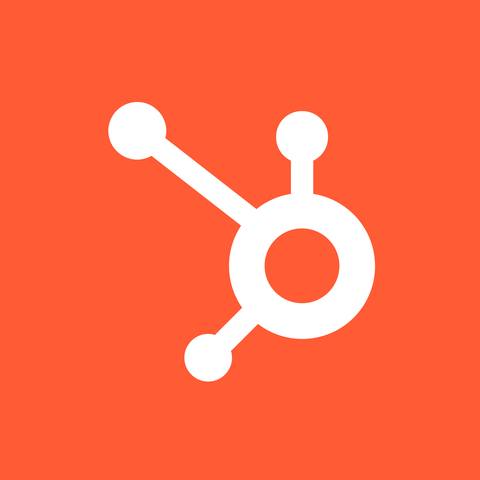

Amplitude Analytics Reviews & Product Details
Amplitude is an analytics tool designed to support businesses by helping them understand user behavior and giving them key insights that can help them improve their products. It offers tools such as behavior tracking, funnel analysis, as well as A/B testing that combines to help companies make data-driven decisions that optimize products and drive business growth.

| Capabilities |
|
|---|---|
| Segment |
|
| Deployment | Cloud / SaaS / Web-Based, Mobile Android, Mobile iPad, Mobile iPhone |
| Training | Documentation |
| Languages | English |

Amplitude Analytics is a great and powerful tool for providing real-time insights about business performance. Amplitude Analytics also allows us to flexibly create audience segments or cohorts, giving us a better understanding of consumer behavior.
As a product analyst for Display & Recommendation, it becomes my responsibility to analyze the performance of different content displayed on the app. With the limitation on the Amplitude Analytics segmentation chart where a maximum of 10 events are supported, the pain point that I faced is that sometimes I need to divide my report into several charts.
Amplitude Analytics provides real-time data visibility to the Product team, which helps us obtain quick insights, realize negative signals of the app performance, and take corrective actions to recover our metrics. Amplitude Analytics increases the team's productivity as we can do simple data processing by ourselves, without having to always rely on the Data team.
It provides a lot of features that help us understand the detailed customer journey using our platform.
Sometimes the data is strange and we don't believe in the value that was shown
Checking segmentation data, analyzing traffic and check funneling of specifc users
Amplitude helps PM with less technical background to instantly access various analytical methods and data insights in realtime manner. Even there are various types of chart ready to use to produce insights.
Sometimes data which produced today, can be different when accessed tomorrow or sometimes later. Better to inform the cut off by how many days so user aware data can slightly change over several days.
Looking which funnel (user process) has high drop Measuring which funnel that is successfully implemented which achieved goals Measure how much time user need to complete a task - looking for where we can improve further Realtime tracking which helps in implementation QA, debugging issues, and getting familiar with the data flow and existence
The data structure is rather flexible with the ability for in-house customization. The supporting staffs are very prompt in project assistance.
I would like to have more room for advanced logic expression with respect to derived user properties
For my specific use case, it is addressing the dynamic cohorting capability which is much needed
The ease and speed with which most of the analysis could be done. 95% of the answers we need, can be found using Amplitude. Since we have started using it, we have never really thought about using any other product.
We were given a start-up plan for a year and could use almost all the features. But it was rolled back without any prior notice. It would be great if Amplitude stuck to its promise and restart our start-up plan effective immediately.
We are able to find answer to almost any question we get about, 1. Retention 2. Engagement 3. CAC 4. Cohorts 5. User Composition 6. Weekly Life Cycles 7. Personnas. 8. Path Finder is just too good to be true.
How easy it is to build my analysis and undestand product behaviour
sometimes its hard to understand the granularity of data
I can easily track the product behaviour and find usefull insights
As a senior product designer, I have to say that I am impressed by Amplitude Analytics. For the first time, I feel comfortable exploring data, and that is a big statement coming from someone who has worked in the digital product industry for over 20 years. I have never been expected to understand metrics or lead data-driven projects. But Amplitude is changing that for me. The platform is both simple and powerful, making data accessible to everyone in a democratic way.
I don't think I have anything so far that I dislike. Kind of addicted to it.
I work for a B2B SaaS company. Our goal is to move to a SaaS PLG model but we still have many questions, especially when it comes to understanding activation behaviors. There are many people, many JTBDs and until now, it was very difficult to effectively track the journey. Amplitude is helping us to strengthen our data-driven mindset, our understanding of events, and our mapping of them. And it does this in a broad way within the company.
I really like the UX/UI Amplitude uses to visualize the data of your app allowing you to create correlated dashboards and charts that show you in a second key performance insights. I also like the simplicity they have used for non-data people to manage and extract useful indicators about the performance and user experience of your app.
In my opinion Amplitude could make it a little bit easier to create and define events so it is more simple to interrelate different events in funnels specially. I find it somehow too techie for a business person to implement it from scratch.
Amplitude allows me to avoid missing vital information about my app and my users' experience from small bugs and problems that can be structured to different user experience flows that we hadn't thought in the first place.
How simple it is, and how powerful is the discovery that I made to improve the results of my time and how accessible it is to all my staff to see de resultuts. I don`t now how competidors works
Should be a better notebook presentation with more options to edit like image formats e other stuffs. A better way to understand the segmentation metrics like New Users
Visibility to my business and when my time work with A/B Teste we can easily saw the results e take decisions after that. Otherway we should need a program skills in time.
Once you learn how to use the tool its intuitive enough to allow you to find the answer to your questions and easily experiment with other slices of the data sets
Sometimes, it's unclear whether there is data for a particular event or not, so it would be nice if the tool only showed events with data associated with it so that you don't waste time
Analytics for lifecycle marketing, general KPIs like active users, growth metrics, conversion metrics, churn, and retention metrics. On lifecycle, we can get a pretty good idea of whether an email is working.
I had in mind that Amplitude was easy, but when I started to learn and use it I was surprised it was easier than I thought! Creating and understand the events you want to measure is so easy!! With many tools ready to use to work with your data, is easy!
I've seen that sometimes it takes too long to refresh data, and sometimes it could take more than 30 minutes! This is too much time considering this excellent toll's real-time purpose. Learn from past events to improve this
I wanted to understand our customer's behavior for main events performed in pur website as well as gather historical data to take business decisions based on this
Amplitude Analytics shows data in a visual format. Also, the spaces help us to organize our content, and the activity tracker helps us understand the flow of user performance.
However, it has many options for new users sometimes; we will be lost in the options. but for us, it seems to be the best as we are used to it, and we would love to see more updates
Amplitude Analytics helps us funneling data and thus increase revenue and helps us maintain records which leads to performing better than others. Also integrations with other software was quite seamless
Amplitude allowed my team to quickly implement the taxonomy and generate reports to better understand how users engage with our products and how to better define and develop the product roadmap based on user input.
I just wish there were more canned reports that could be leveraged, helping quickly find useful information from the data.
Understand product adoption and stickness, drive roadmap decisions and measure impact of new product/feature introductions. We can now better understand our customers and make decisions based on the user data.
Amplitude Data Analytics is a powerful and comprehensive analytics platform that provides businesses with valuable insights about user behavior. It offers powerful features such as segmentation, funnel analysis, cohort analysis, and user journeys to help businesses better understand their users and optimize their product and growth strategies. Additionally, Amplitude’s flexible query builder allows users to quickly build custom queries to answer their own questions. The starter plan is also very helpful!
However, one major downside to Amplitude Data Analytics is that it can be quite expensive, especially for small businesses. Additionally, the platform can be difficult to use for those who are not familiar with data analytics and might require a learning curve to become comfortable with the interface
Amplitude Analytics is a data analytics platform that helps businesses understand user behavior, measure product performance, and optimize customer experiences. By leveraging user-level data, Amplitude Analytics provides actionable insights to help companies identify user trends, discover product usage patterns, and develop strategies to retain users and increase engagement. Amplitude Analytics is beneficial to businesses by providing data-driven insights to inform product development, user experience design, and marketing campaigns. With Amplitude Analytics, businesses can gain a better understanding of their users, products, and engagement metrics, allowing them to make more informed decisions and drive better results.
Amplitude makes it so easy to understand how users are using our app. It's incredibly straightforward to set up events, and the tools for visualizing them are extremely powerful yet still simple to use.
The only real issue I've encountered with Amplitude is that sometimes it can take some time for my data to populate. For example, I set up a new Amplitude event recently, and it took me quite a while to start seeing that data inside Amplitude. I knew I was triggering events for it, so I was very confused and thought I might have been looking in the wrong place, but it seems like it just needed time to process.
Amplitude makes it extremely easy for my team and I to analyze how users are using our app. It gives us insight into what features they find valuable and areas we could improve upon.
The time-savings that I get as a Data Analyst using even the free version of Amplitude is huge. Time-dependent event tracking in funnels is a tedious and taxing manual coding effort, but Amplitude is able to stitch together timelines of events seemlessly and allow you to create funnel data based on tracked events or user properties pretty handily without coding. That alone is nuts. Also, having the ability to quickly throw up histograms, bar charts, or line charts based on tracked events makes for easy scrappy insight-testing. The fact that all this is not paywalled is fantastic and makes our organization seriously consider elevated plans.
Dashboard customizability is pretty slim -- there is no ability to add spacers, dividers, and text fields in dashboards. Also, horizontal annotations and an extended color palette for chart options would be nice to have, but are not present. Also, the ability to dig back in time multiple years on a chart is restricted in the free mode, paywalling deeper insight.
Amplitude makes quick insight generation possible and solves a majority of basic needs from a product insight perspective with its array of tools. It is just simply easy to use.
Segmentation and Funnel are the foundation, but cohort and data tables took it to a new level. Did I mention you get soooo much for free?
Not much "dislike" as much as it feels like too many tools that need a lot of training to master
Any insights into the product and user experience, including A/B tests and user segmentation
The tooling, pre-built reports, and analysis make the time-to-value ratio very good. We can quickly track, analyze, then modify our platform to bring constant value to the user. Tooling is also excellent for Amplitude managers to find unused or mistagged events.
The platform is not very intuitive at the beginning. It is made for power users, and once you get a grip on it, it becomes a breeze to use. The ramp-up is quite rough, however.
We can quickly spot cohorts of users and find where they fail at doing something so that we can optimize their journey. We can also track feature adoption, and find features that are less popular.
The ease of getting started and learning. The documentation and available communities that help with specific questions and the overall ease of use and efficiency, while everything is only a few clicks away. Continuous improvements done by the development team are always helpful and appreciated.
There are minor limitations regarding too large date ranges (plotting for a duration over three years; however, offsets can be used to, well, offset this). Some small UI improvements could be made but the tool is a joy to use as it is.
Performance reporting is difficult to communicate without a direct monetary value attached. Amplitude provides an efficient and versatile tool that can be relied upon.
the number of graphics possible. The ease with which everyone can understand. The support we receive from the Product Minds Team with every doubt we have.
We track events from 3 different platforms. Android, iOS and web. Many times there are differences between them. I would like to receive an alert of these differences when doing an analysis. Example, if I make a funnel where a first event is tracked on all platforms, but the second is only tracked on one, the funnel will show a huge drop, which is actually because the second event is not tracked on all platforms. Users who do not follow the day-to-day taxonomy do not realize these things.
It helps us prioritize the needs of all teams. And then validate the impact of our actions. With Amplitude we spent time doing really helpfull features.






